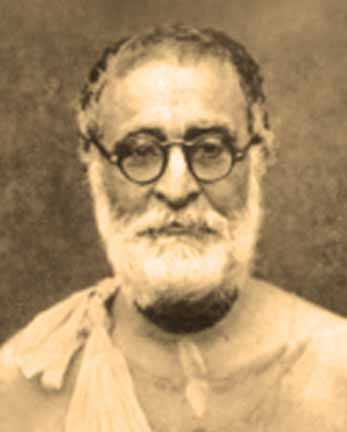śrī śrī guru gaurāṅga jayataḥ!

Year 11, Issue 12
Posted: 25 January 2019
Dedicated to
nitya-līlā praviṣṭa oṁ viṣṇupāda
Śrī Śrīmad Bhakti Prajñāna Keśava Gosvāmī Mahārāja
Inspired by and under the guidance of
nitya-līlā praviṣṭa oṁ viṣṇupāda
Śrī Śrīmad Bhaktivedānta Nārāyaṇa Gosvāmī Mahārāja
How We Pray

Some people attempt to acquire heroism through karma; some strive to fulfill other desires; some others (jñānīs) strive to culture knowledge of brahma; yet others (yogīs) strive to accomplish oneness with God. But we know that worship meant for attaining dharma, artha, kāma or mokṣa is a mere pretence. These forms of worship are only connected with base selfishness. They have nothing to do with liberated souls, but are the ravings of conditioned, or fettered, souls, only.
Lord Śrī Caitanya gave instructions to people all over India to give everyone they came across this advice: worship Kṛṣṇa and become gurus at His command in order to deliver the people in your region. Anticipating a doubt in them as to how that would be possible for them, when they were not themselves fully accomplished and, as such, not competent for the purpose, His Lordship continued thus – the waves of viṣaya – their worldly enjoyments – would not hamper their mission (Śrī Caitanya-caritāmṛta, Madhya-līlā 7.128–129).
He thus told them to endeavour for God, even from the positions they were now occupying, irrespective of differences of place, time or person. Now, to carry out His commandment, there is no other course than to cultivate what we have learned at the lotus feet of our Śrī Gurudeva. The only work for a worshipper of God is to see that his skill in worshipping God increases more and more. Our eternal prayer should be that our attachment to Kṛṣṇa increases more and more. We do not want power and pelf, nor cessation of further births. Various types of men goaded by other desires worship various deities and pray for dharma, artha, kāma and mokṣa.
But when we approach Śrī Mahādeva Śiva, we pray (in the wake of Śrīla Viśvanātha Cakravartī):
“O Śiva with the moon on your head, in charge of protecting the land of Vṛndāvana, O you who are worshippable by Śrī Nārada, Sanandana, Sanātana and others, and honoured by the gopas and gopīs, please give me intense love, devoid of any motive, for the lotus feet of the sportive couple of Vraja – Śrī Rādhā-Kṛṣṇa.”
When we come before Śrī Kātyāyanī-devī, we pray (after the damsels of Vraja, Śrīmad-Bhāgavatam 10.22.7):
“O Goddess Mahāmāyā – Yogamāyā Kātyāyanī – please make the son of Vraja’s chief, Nanda – make Kṛṣṇa – my consort.”
We do not make any prayer to heal disease, nor for emancipation by destroying both the patient and the disease. We pray before the deities: “Please bless us with attachment to Kṛṣṇa.” The people of the world pray to become enriched by viṣayas, objects of enjoyment other than Kṛṣṇa. But our gurudeva has taught us that only Kṛṣṇa is the viṣaya.
We are mendicants, no doubt; we do not beg to be supplied with any desirable object of sensual enjoyment. The refrain of alms before all honest people is that they may think about the grace of Śrī Caitanya Mahāprabhu and wonder.
We pray along with Śrī Prabodhānanda Sarasvatīpāda of Śrī Raṅgam of South India: “O sādhus (honest folk), we pray before you with blades of grass between our teeth and with hundreds of supplications, that throwing everything else far away, you may have attachment to the feet of Śrī Caitanya Mahāprabhu.”
Adapted from The Gaudiya Volume 8, Number 12, Part 1 of 2
by the Rays of The Harmonist Team





